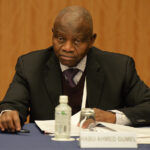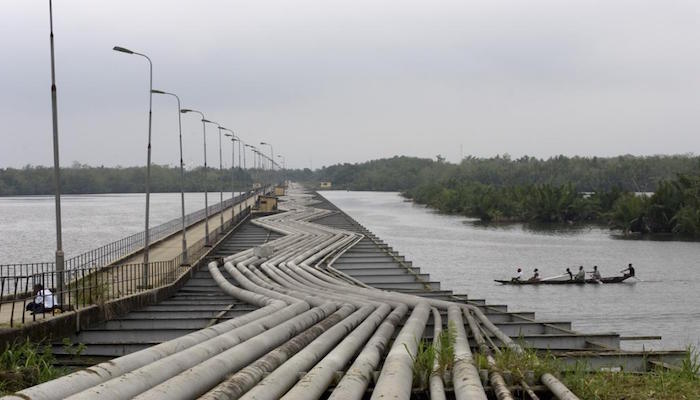By Angela Atabo
Pipeline Professionals Association of Nigeria (PLAN) has commended the decline in cases of pipeline vandalism across the country, describing pipeline systems as the lifeblood of national development.
Mr Geoff Onuoha, the Chairman of the Board of Trustees of PLAN, made the commendation on Tuesday at the 2025 Nigerian International Pipeline Technology and Security Conference (NIPITECS) in Abuja.
The News Agency of Nigeria (NAN) reports that the theme of the conference is “Building Robust Pipeline Systems for the Decade of Gas and Beyond”.
Onuoha said, “It is becoming noticeable that there is a drop in acts of unauthorised intervention in pipelines; pipeline vandalism, there are different terminologies we use to describe it. It is a good thing.
“We hope that people are seeing that attacking pipelines or damaging pipelines does not provide a solution, because you do not get what you want from pipelines.
“Also, you are actually doing harm to your environment, where you get your water from, where you get your fish from, where you get your cassava from. So, I hope that message is clear.
“That is part of the message that our association has been sending, that pipelines are critical, they help you. If we encourage that they are used properly, it leads to a better life for everybody down the line.”
He emphasised the critical importance of pipeline systems in sustaining Nigeria’s energy and industrial ecosystem, noting that their role extended far beyond gas transportation.
According to him, while pipelines are often overlooked, their importance becomes glaring whenever there are disruptions.
“PLAN is therefore building a robust pipeline system not limited to gas alone because it only serves a portion of the industry that is served by pipelines.
“We are thinking of beyond, going beyond 2030, when the decades of gas ends. Now, pipelines are super critical, and one of our roles here is to highlight the importance of pipelines.
“Nigerians know, to some extent, because when we had problems in the pipelines, everybody knew. Until then, nobody knew pipelines existed and when it comes to normalcy, everybody forgets pipelines, until something happens again.
“So, our role as pipeline professionals is to ensure that we build robust, sturdy, and well-maintained pipeline system. And when we say robust, it means from design to construction, operation, maintenance, and also to decommissioning, when the time comes for that.”
Onuoha said PLAN was building what would work and drive industries, energy production, manufacturing and drive social life for everybody, so people would see value in the system.
The PLAN Chairman commended pipeline engineers for their efforts in building the economy over the years even though their work seemed unnoticeable most times.
“The beautiful thing about our own engineering piece is that when we build it, it works best when nobody sees it.Our engineering is not as visible as other engineering work,” he said.
He urged PLAN members to promote professionalism, employ best practices, promote maintaining of standards and rules to lead PLAN to make pipeline issues visible.
Also speaking, a member of the PLAN Board of Trustees, Saidu Mohammed, underscored the need to classify oil and gas pipelines as national critical infrastructure.
Mohammed advocated new financing frameworks and increased private sector participation in pipeline development, particularly for crude evacuation systems and downstream distribution networks.
“Nigeria’s pipelines have aged, and we must prioritise their replacement.
“A phased development approach supported by public-private partnerships will ensure efficient supply to refineries, reduce trucking dependence, and improve national energy security.”
Rep. Henry Okojie, the Chairman, House of Representatives Committee on Petroleum Resources (Midstream), commended PLAN for providing the timely and critical platform that brought together stakeholders to exchange ideas.
Okojie who was represented by Dr Abdullahi Yakubu, from the National Assembly said the event would help to deepen understanding and accelerate progress in building a resilient, efficient and future-ready pipeline network.
“As a legislator and advocate for sound infrastructure and energy transformation, I reaffirm my commitment to supporting policies, legislative frameworks, and oversight processes to enhance investment, innovation, transparency and accountability.”
Dr Vincent Izionworu, Associate Professor of Corrosion Engineering and Chair of the NIPITECS 2025 Technical Committee, said the ninth edition of the conference focused on building robust pipeline systems for the decade of gas and beyond.
Izionworu said the two-day conference featured regulators, pipeline professionals, engineers, academia, and stakeholders globally to share expert insights on technical challenges, regulatory frameworks, and innovative solutions for pipeline infrastructure.(NAN)(www.nannews.com)
Edited by Deji Abdulwahab











